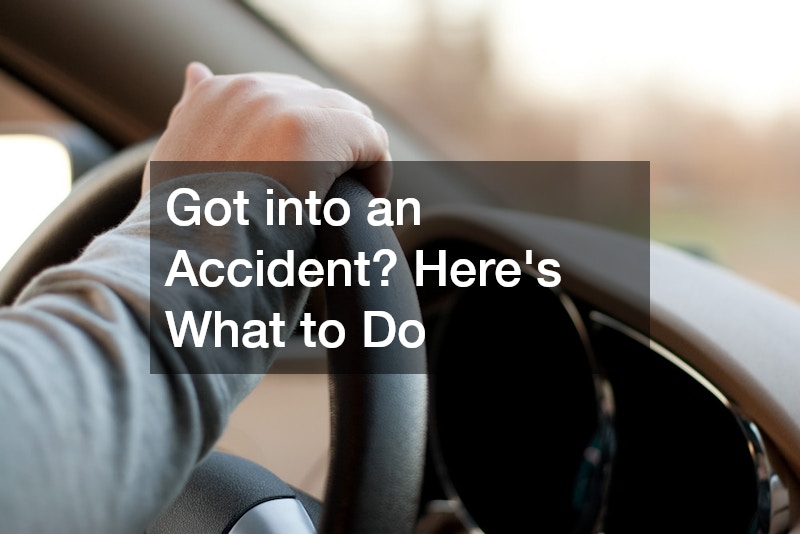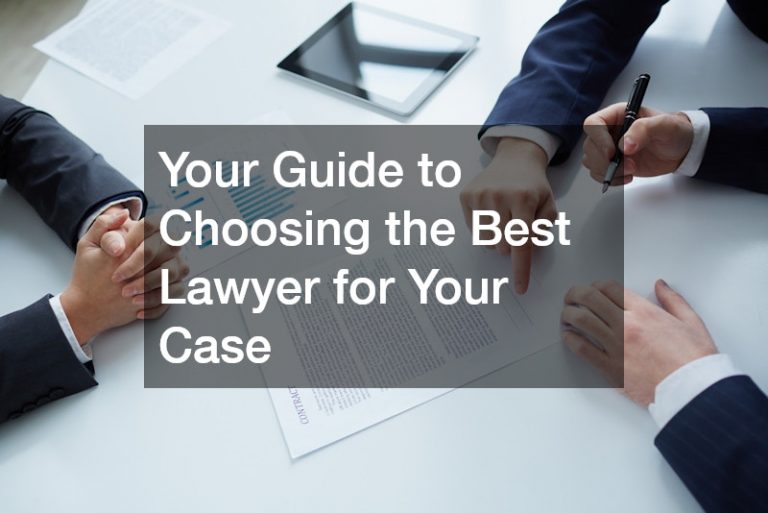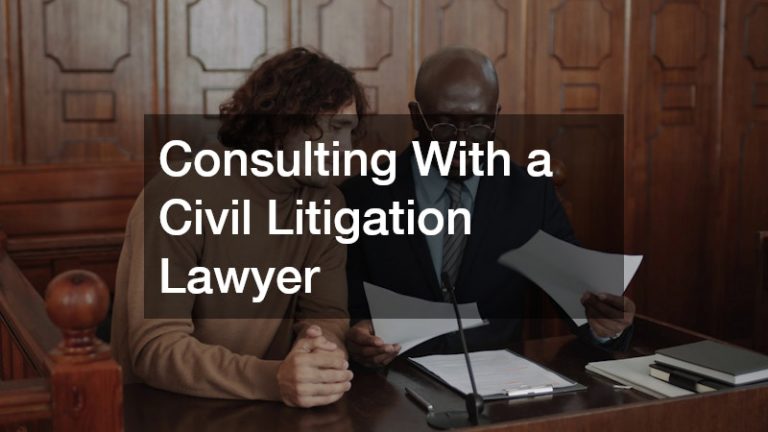

Accidents can happen when we least expect them, and in the aftermath, it’s easy to feel overwhelmed and unsure of what to do next. The immediate aftermath of an accident is crucial, not just for ensuring your safety but also for protecting your legal and financial interests. Understanding the necessary steps to take after a collision can make a significant difference in how smoothly the recovery process unfolds. This guide aims to provide clear, actionable advice on how to handle an accident efficiently and safely. From ensuring everyone’s safety to understanding your legal options, we’ll cover everything you need to know to navigate this challenging situation, including when to contact an auto accident attorney or other professionals.
When you’re in the middle of a stressful situation, it’s easy to overlook important details. However, following the correct procedures immediately after an accident can save you from potential headaches down the road. From dealing with insurance companies to seeking medical attention, knowing the right steps to take can make all the difference. This guide will also touch on the role of personal injury attorneys and other legal professionals who may be able to assist you, as well as tips for avoiding common mistakes that can complicate your recovery.
What Should I Do Immediately After an Accident?

The first thing to do after an accident is to ensure that everyone is safe and check for injuries. Your priority should always be the well-being of those involved. If anyone is hurt, call emergency services right away to get medical assistance. After making sure that everyone is safe, move your vehicle to a safe location if possible. This is especially important if the accident happened in a busy area. Moving your car out of the way reduces the risk of further collisions. Once your vehicle is in a safe spot, turn on your hazard lights and place warning triangles if you have them to alert other drivers. This will also help prevent any additional damage that could necessitate collision repair.
Moving your vehicle to a safe location also ensures that emergency responders and law enforcement can reach the scene without difficulty. Keeping your car in the middle of the road or in a dangerous spot can delay their arrival and potentially cause more harm. Even minor accidents can lead to major repair costs, so taking steps to avoid further damage can save you from expensive bills at car repair shops. By ensuring that no further accidents occur at the scene, you’re also protecting yourself from potential legal complications, as leaving your car in a dangerous spot could be considered negligent behavior in some jurisdictions.
How Do I Report the Accident to the Authorities?
Reporting the accident to the authorities is a critical step in handling the situation correctly. In many places, you are legally required to call the police if the accident involves significant property damage, injuries, or fatalities. When calling 911 or your local emergency number, be prepared to provide essential information to the dispatcher, such as the location of the accident, whether there are injuries, and the number of vehicles involved. Providing clear and accurate information helps ensure that emergency responders arrive prepared. Law enforcement will document the scene, and the police report can be an important piece of evidence for insurance claims and legal proceedings, especially if you need to involve a local defense attorney.
It’s also important to understand the role that law enforcement plays at the scene of the accident. They will gather information, interview witnesses, and possibly issue citations depending on who is at fault. This police report will serve as an official account of what happened and can be used when filing an insurance claim or in legal proceedings if necessary. Whether you need to repair your vehicle at car repair shops or deal with injuries, having a police report can make the process much smoother and prevent disputes down the line. Make sure to get the name and badge number of the officers at the scene for your records.
What Information Should I Exchange with the Other Driver?

After ensuring everyone’s safety and contacting the authorities, it’s essential to exchange information with the other driver. This includes gathering contact details such as names, phone numbers, and addresses. Additionally, make sure to get the other driver’s insurance information, including the policy number and provider. You will also need the make, model, and license plate number of their vehicle. This information is crucial for filing insurance claims and resolving any disputes that might arise later. Taking photos of the accident scene, including vehicle damage, road conditions, and any visible injuries, can also serve as valuable evidence, particularly if you decide to seek compensation with the help of personal injury attorneys.
Along with exchanging basic contact and insurance information, try to document as much of the scene as possible. This includes taking pictures of any skid marks, damage to the vehicles, and nearby traffic signs or signals. The more documentation you have, the easier it will be to prove your side of the story if there is any dispute about who is at fault. Additionally, if there were any witnesses to the accident, get their contact information as well, as their statements could be helpful in supporting your case should you need to hire personal injury lawyers to represent you.
How Do I File an Insurance Claim?
Once you’ve exchanged information with the other driver and documented the accident scene, the next step is to contact your insurance company. When reporting the accident, provide them with all the details you’ve gathered, including the police report number, photos, and the other driver’s insurance information. The claims process can be complicated, but being organized will help it move along smoothly. Insurance companies will send out adjusters to assess the damage and determine the cost of repairs. Understanding the claims process is crucial, as missing information could delay your claim or result in a denial. If you’re unsure about your rights during this process, contacting social security disability attorneys or other legal professionals who specialize in dealing with insurance companies may be beneficial.
When dealing with your insurance company, make sure to keep detailed records of all your interactions. This includes saving copies of emails, taking notes during phone calls, and following up on any requests for additional documentation. Your insurance provider may require you to visit specific auto repair services or collision repair centers to get quotes on the damage. Familiarize yourself with your policy’s coverage and limits, as this will help you understand what to expect in terms of repairs or medical bills. If your insurance company is not responsive or denies your claim unfairly, seeking legal advice from personal injury attorneys could be the next step to ensure you receive the compensation you deserve.
Should I Visit a Doctor Even if I Feel Fine?

Even if you feel fine after the accident, it is always a good idea to see a doctor for a medical check-up. Some injuries, such as whiplash or internal bleeding, may not present symptoms immediately. A doctor can help identify any issues that may develop later. Documenting your medical visits is essential for both insurance claims and any potential legal cases, especially if you need to seek compensation for injuries. If you start to experience delayed symptoms, such as headaches or neck pain, a physical therapist may be necessary to help you recover. Medical documentation is crucial if you need to file a personal injury claim later, as it shows a clear timeline of when your injuries occurred and how they were treated.
In addition to visiting a general practitioner, you may want to consider seeing specialists depending on the nature of your injuries. For example, if you are experiencing pain or discomfort in your muscles or joints, a physical therapist can assist in your recovery and help prevent long-term damage. Keep track of all medical bills and treatment records, as this information is necessary when dealing with your insurance provider or if you decide to pursue legal action with the help of auto accident attorney professionals. Even minor injuries can lead to complications if not properly treated, so it’s important to take your health seriously after an accident.
Do I Need Legal Representation?
Depending on the severity of the accident, you may need to consider hiring legal representation. If the accident resulted in significant property damage, serious injuries, or a dispute about who is at fault, contacting an auto accident attorney can help you understand your legal rights and options. Attorneys specialize in negotiating with insurance companies, gathering evidence, and ensuring that you receive fair compensation for your damages. Whether you’re dealing with medical bills, lost wages, or property damage, having a lawyer on your side can make a big difference. It’s also important to consider hiring a lawyer if the other party has already retained legal representation.
In situations where the accident leads to a personal injury claim, personal injury lawyers can provide crucial support. These professionals can assess your case, help you gather necessary documentation, and represent your interests in court if necessary. If your injuries prevent you from returning to work, they can also coordinate with social security disability attorneys to ensure that you receive the benefits you’re entitled to. Even if the accident seems straightforward, legal representation can protect you from unforeseen complications, such as disputes with insurance companies or hidden clauses in your policy.
How to Handle Emotional and Psychological Impact?

Being involved in an accident doesn’t just affect you physically—it can also take an emotional toll. It’s not uncommon for accident victims to experience feelings of anxiety, depression, or even post-traumatic stress in the days or weeks following the incident. Recognizing the emotional aftereffects of an accident is important for your overall well-being. If you’re struggling to cope, seeking professional mental health support can be a crucial step in your recovery. Talking to a therapist or counselor can help you process your feelings and develop coping mechanisms. In some cases, speaking with a local defense attorney might also be necessary if the emotional impact of the accident leads to legal action or complicates the case.
Support networks, including family and friends, can also play a vital role in helping you recover emotionally. Reaching out to others and discussing your feelings can provide relief and prevent long-term psychological issues. In some cases, accident victims may find that joining a support group or working with a specialized therapist is beneficial in dealing with post-accident stress. Mental health is just as important as physical recovery, and addressing both aspects can help ensure a smoother and more complete healing process. If you feel overwhelmed by the legal or financial implications of the accident, contacting personal injury lawyers can alleviate some of the burden, allowing you to focus on your emotional recovery.
What Should I Avoid Doing After an Accident?
After an accident, there are several key actions to avoid to protect yourself from legal or financial repercussions. First and foremost, avoid admitting fault or guilt at the scene of the accident, even if you think you were partially responsible. Saying something as simple as “I’m sorry” can be interpreted as an admission of guilt and could be used against you in a legal setting. Additionally, avoid signing any documents or making public statements without first consulting with personal injury lawyers. Signing unclear documents could inadvertently waive your right to seek further compensation, leaving you responsible for future expenses.
It’s also important to keep your public statements about the accident minimal. Discussing the accident on social media or with people not directly involved could complicate your case. Anything you say publicly could potentially be used against you by the other party’s insurance company or legal team. It’s always a good idea to speak with an attorney before making any statements or signing any paperwork. Your attorney can provide valuable guidance on what to say and what to avoid to ensure that your rights are protected. By avoiding these common pitfalls, you can protect yourself from unnecessary legal and financial complications.
How Can I Prevent Future Accidents?
Preventing future accidents starts with adopting safe driving practices. This includes following all traffic laws, avoiding distractions, and staying aware of your surroundings at all times. Safe driving also involves being mindful of the condition of your vehicle. Regular vehicle maintenance, including tire checks, brake inspections, and fluid levels, can help prevent accidents caused by mechanical failure. Additionally, keeping up with routine maintenance at auto repair services can ensure that your vehicle is in top condition, reducing the likelihood of future accidents. Some drivers may also consider attending advanced driver education courses to improve their skills and reduce the risk of accidents.
Vehicle maintenance should extend beyond routine services. If your vehicle has been involved in an accident, it’s important to visit collision repair specialists and auto paint shops to fix any damage. Even minor dents and scratches can impact your vehicle’s safety and performance, potentially leading to another accident down the line. By addressing all damage and maintaining your vehicle regularly, you can avoid future incidents and keep yourself and others on the road safer. Continuous education and awareness are also essential for preventing accidents, as road conditions and driving environments can change rapidly.
What are the Common Pitfalls People Face After Accidents?
One of the most common pitfalls people face after an accident is underestimating the importance of documentation. It’s easy to forget to take pictures or fail to write down key details in the heat of the moment, but these oversights can significantly impact your ability to file an insurance claim or seek legal recourse. Failing to follow up with insurance companies is another common mistake. After filing a claim, make sure to stay on top of the process, checking in regularly with both your insurer and the auto repair services handling your vehicle. This helps prevent delays and ensures that your claim is processed as quickly as possible.
Another common pitfall is ignoring minor symptoms or health signs. After an accident, you might feel fine initially, but symptoms like headaches, muscle pain, or dizziness can develop days or even weeks later. If you ignore these signs, they can turn into more serious health issues that require extensive medical care. Additionally, failing to seek legal representation when necessary can lead to missed compensation opportunities. Whether it’s dealing with insurance companies or handling injury claims, having the support of auto accident attorney professionals can make a significant difference in the outcome of your case.
Conclusion
Being involved in an accident is a distressing experience, but knowing the right steps to take can help mitigate the stress and ensure a smoother recovery process. From ensuring safety at the scene and gathering the right information to filing insurance claims and seeking medical care, each step plays a vital role in the aftermath of an accident. Additionally, understanding your legal rights and seeking representation from personal injury attorneys when necessary can protect you from financial and legal repercussions. By following these tips, you can navigate the post-accident process with confidence and focus on recovering both physically and emotionally.



